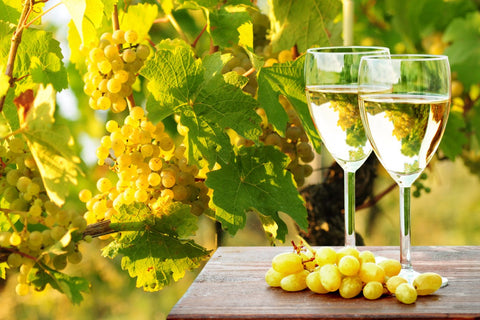
What is Sustainable Wine?
Sustainable wine is wine production that aims to minimise the impact of wine production on the environment, the conservation of natural resources and the promotion of social responsibility.
This approach includes the use of organic or biodynamic farming methods, the reduction of water consumption, the minimisation of the use of pesticides and herbicides and the efficient management of waste.
Social responsibility is also a key aspect of sustainable winemaking. Sustainable wine producers aim to ensure economic sustainability by supporting local communities, promoting ethical business practices throughout the supply chain, and treating workers fairly.
They also strive to maintain financial viability in the long term.
Certification programs like SIP Certified, Certified Sustainable Winegrowing, and Demeter Biodynamic Certification provide guidelines and standards for sustainable winemaking. They help you identify wines that meet sustainable criteria.
Practices for Sustainability in the Wine Industry
Organic Practices
Organic farming avoids synthetic chemicals, such as fertilizers, herbicides, and pesticides, in favour of natural alternatives. Organic vineyards use natural fertilizers, such as compost and manure, to nourish the soil, and use natural pest control methods, such as companion planting and the use of beneficial insects, to keep pests in check. Organic winemakers also avoid using additives, such as sulphites, in their wines.
One of the main benefits of organic wine practices is the reduced impact on the environment. By avoiding synthetic chemicals, organic farming helps preserve soil health and prevent water pollution. Organic practices also help preserve biodiversity by promoting the growth of beneficial insects and other wildlife.
In addition to the environmental benefits, organic practices can also produce high-quality wine. By avoiding synthetic chemicals, organic farming allows the grapes to express their natural flavours and terroir. Organic wines are often described as having more complexity and nuance than conventionally produced wines.
Biodynamic Practices
Biodynamic farming takes organic farming a step further by viewing the vineyard as a holistic ecosystem. Biodynamic vineyards use techniques such as crop rotation, composting, and natural pest control, similar to organic practices. However, they also use preparations made from herbs, minerals, and animal products to promote soil health and plant growth.
Biodynamic farming also follows a planting calendar based on the lunar cycle and incorporates other astrological influences. These practices are believed to promote a harmonious relationship between the vineyard and the surrounding environment. Biodynamic vineyards also promote biodiversity by planting cover crops and preserving natural habitats.
The benefits of biodynamic wine practices are similar to those of organic farming. By promoting soil health and avoiding synthetic chemicals, biodynamic vineyards can produce high-quality wine while reducing their impact on the environment. Some enthusiasts believe that biodynamic practices can produce even more complex and nuanced wines than organic practices alone.
Sustainability practices are becoming increasingly important in the wine industry, and organic and biodynamic practices are two major approaches to sustainable winemaking. Both practices prioritize natural farming methods to reduce the impact on the environment and produce high-quality red wine or white wine. Whether you prefer organic or biodynamic wines, choosing sustainably produced wines can help reduce your impact on the environment and support winemakers who prioritize environmental responsibility.



